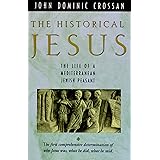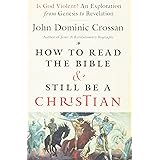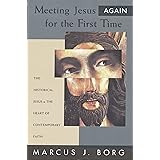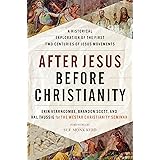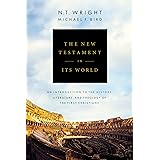
Enjoy fast, free delivery, exclusive deals, and award-winning movies & TV shows with Prime
Try Prime
and start saving today with fast, free delivery
Amazon Prime includes:
Fast, FREE Delivery is available to Prime members. To join, select "Try Amazon Prime and start saving today with Fast, FREE Delivery" below the Add to Cart button.
Amazon Prime members enjoy:- Cardmembers earn 5% Back at Amazon.com with a Prime Credit Card.
- Unlimited Free Two-Day Delivery
- Streaming of thousands of movies and TV shows with limited ads on Prime Video.
- A Kindle book to borrow for free each month - with no due dates
- Listen to over 2 million songs and hundreds of playlists
- Unlimited photo storage with anywhere access
Important: Your credit card will NOT be charged when you start your free trial or if you cancel during the trial period. If you're happy with Amazon Prime, do nothing. At the end of the free trial, your membership will automatically upgrade to a monthly membership.
Buy new:
-14% $19.79$19.79
Ships from: Amazon Sold by: Gem Book
Save with Used - Very Good
$9.07$9.07
Ships from: Amazon Sold by: Branch Sales and Surplus

Download the free Kindle app and start reading Kindle books instantly on your smartphone, tablet, or computer - no Kindle device required.
Read instantly on your browser with Kindle for Web.
Using your mobile phone camera - scan the code below and download the Kindle app.

OK
 Audible sample Sample
Audible sample Sample 


God and Empire: Jesus Against Rome, Then and Now Hardcover – March 13, 2007
Purchase options and add-ons
The bestselling author and prominent New Testament scholar draws parallels between 1st–century Roman Empire and 21st–century United States, showing how the radical messages of Jesus and Paul can lead us to peace today
Using the tools of expert biblical scholarship and a keen eye for current events, bestselling author John Dominic Crossan deftly presents the tensions exhibited in the Bible between political power and God’s justice. Through the revolutionary messages of Jesus and Paul, Crossan reveals what the Bible has to say about land and economy, violence and retribution, justice and peace, and ultimately, redemption. He examines the meaning of “kingdom of God” prophesized by Jesus, and the equality recommended to Paul by his churches, contrasting these messages of peace against the misinterpreted apocalyptic vision from the book of Revelations, that has been co-opted by modern right-wing theologians and televangelists to justify the United State’s military actions in the Middle East.
- Print length272 pages
- LanguageEnglish
- PublisherHarperOne
- Publication dateMarch 13, 2007
- Dimensions6 x 0.93 x 9 inches
- ISBN-109780060843236
- ISBN-13978-0060843236
Books with Buzz
Discover the latest buzz-worthy books, from mysteries and romance to humor and nonfiction. Explore more
Frequently bought together

Similar items that may ship from close to you
Editorial Reviews
From Publishers Weekly
Copyright © Reed Business Information, a division of Reed Elsevier Inc. All rights reserved.
From Booklist
Copyright © American Library Association. All rights reserved
Review
“A dual tribute to intelligent faith and responsible citizenship, this book is as illuminating as it is timely.” — James Carroll, author of House of War: The Pentagon and the Disastrous Rise of American Power
“This fine study of civilization, culture and transformation presents a complex subject in a clear and powerful way.” — Publishers Weekly
“This book makes the best reading for the most readers of any that Crossan has written.” — Booklist (starred review)
“A wonderfully written and organized treatise... Thoroughly enjoyable and incredibly informative.” — Library Journal
From the Back Cover
At the heart of the Bible is a moral and ethical call to fight unjust superpowers, whether they are Babylon, Rome, or even America.
From the divine punishment and promise found in Genesis through the revolutionary messages of Jesus and Paul, John Dominic Crossan reveals what the Bible has to say about land and economy, violence and retribution, justice and peace, and, ultimately, redemption. In contrast to the oppressive Roman military occupation of the first century, he examines the meaning of the non-violent Kingdom of God prophesized by Jesus and the equality advocated by Paul to the early Christian churches. Crossan contrasts these messages of peace with the misinterpreted apocalyptic vision from the Book of Revelation, which has been misrepresented by modern right-wing theologians and televangelists to justify U.S. military actions in the Middle East.
In God and Empire Crossan surveys the Bible from Genesis to Apocalypse, or the Book of Revelation, and discovers a hopeful message that cannot be ignored in these turbulent times. The first-century Pax Romana, Crossan points out, was in fact a "peace" won through violent military action. Jesus preached a different kind of peace—a peace that surpasses all understanding—and a kingdom not of Caesar but of God.
The Romans executed Jesus because he preached this Kingdom of God, a kingdom based on peace and justice, over the empire of Rome, which ruled by violence and force. For Jesus and Paul, Crossan explains, peace cannot be won the Roman way, through military victory, but only through justice and fair and equal treatment of all people.
About the Author
John Dominic Crossan, professor emeritus at DePaul University, is widely regarded as the foremost historical Jesus scholar of our time. He is the author of several bestselling books, including The Historical Jesus, How to Read the Bible and Still Be a Christian, God and Empire, Jesus: A Revolutionary Biography, The Greatest Prayer, The Last Week, and The Power of Parable. He lives in Minneola, Florida.
Product details
- ASIN : 0060843233
- Publisher : HarperOne; 1st edition (March 13, 2007)
- Language : English
- Hardcover : 272 pages
- ISBN-10 : 9780060843236
- ISBN-13 : 978-0060843236
- Item Weight : 15.7 ounces
- Dimensions : 6 x 0.93 x 9 inches
- Best Sellers Rank: #362,288 in Books (See Top 100 in Books)
- #334 in Church & State Religious Studies
- #1,526 in History of Christianity (Books)
- #2,036 in Christian Church History (Books)
- Customer Reviews:
About the author

John D. Crossan is generally acknowledged to be the premier historical Jesus scholar in the world. His books include The Historical Jesus, Jesus: A Revolutionary Biography, and Who Killed Jesus? He recently appeared in the PBS special "From Jesus to Christ."
Customer reviews
Customer Reviews, including Product Star Ratings help customers to learn more about the product and decide whether it is the right product for them.
To calculate the overall star rating and percentage breakdown by star, we don’t use a simple average. Instead, our system considers things like how recent a review is and if the reviewer bought the item on Amazon. It also analyzed reviews to verify trustworthiness.
Learn more how customers reviews work on Amazon-
Top reviews
Top reviews from the United States
There was a problem filtering reviews right now. Please try again later.
Crossan delivers his own credo on p. 198 when he reveals the content of his Bin of Disbelief, the main reasons he decries Christian fundamentalism and "Left Behind-ish" Apocalyptic theology. "What I reject," says the scholar, is "discrimination and oppression, homophobia and patriarchy, injustice and violence, force and empire."
That's a lot of rejecting. And Crossan is making the case that Jesus' message is right there with him, if only we can parse it out of the Bible. Trouble is, the Bible, including the New Testament, doesn't always seem to contain the same items in its Bin of Disbelief. This is where Crossan will lose a lot of readers. What he posits is that you must choose which parts of the New Testament to take seriously as bonafide Jesus talk (God's radicality) and which parts are later slippages back to civilization's normalcy.
He actually groups the Letters of St. Paul into three categories. The first group, definitely written by Paul, present the radical Paul who believes in the same Christianity as Crossan; the second group of letters are of suspect authorship and reveal the liberal Paul, a middle of the roader. The third bunch of letters are just plain phony, and here we find the conservative Paul, a sexist, anti-Semitic homophobe. The Gospel of Luke and Acts of the Apostles are likewise infected with the backsliding to civilization's normalcy, while the earlier Gospel of Mark is a far better record of what really issued from Jesus' lips.
Worst of all is the Book of Revelation, today enjoying wide renown as the primary basis of the hugely popular "Left Behind" books about the end of the world. Crossan examines Revelation and determines that its author simply presents an untenable Jesus, one utterly different from the Jesus of history. Almost wistfully, Crossan cites Martin Luther King's reference to Revelation (p. 150), made a week before his murder, and concludes rightly that King interpreted the Book as referring to Jesus' First, not Second Coming. Scholarly integrity bars Crossan from such an easy out. He acknowledges that Revelation presents a very violent Jesus coming again and stomping enemies like grapes and feeding them to the vultures. Crossan simply rejects Revelation as a bogus presentation of Jesus and tells the reader he too must choose between the lovingly just and vengefully just Jesus, between the Kingdom of God as present and developing and the Kingdom as coming in fire and cosmic destruction.
It's a tough sell for Christians used to viewing the whole Bible as inspired and "scriptural." The New Testament might revise the Old, but the New Testament doesn't revise itself. There are moments in God and Empire where Crossan really does seem to be force fitting the "acceptable" passages into his preconceived notion of genuine Jesus talk. Most of what he argues, however, is defensible. His explication of 1 Thessalonians' treatment of the return of Jesus is masterful and spot on; it is a resounding refutation of those who want to view that passage as an exposition of "The Rapture" and those "Left Behind." His overall discussion of St. Paul is a little simplistic but most challenging. He is weakest when he argues for an end to civilization itself, as if that is what Jesus came to establish.
Crossan's analysis is far from weak, though. What he makes clear is that the "Left Behind" take on the Second Coming is fatally at odds with core tenets of Jesus' teaching. Not only that, if you buy the Left Behind fantasy, its insistence on God's determination to destroy the planet is so calamitous that it renders Jesus First Coming irrelevant. Jesus didn't have to live at all 2000 years ago for God to wipe us out and save the few He elects. He did it on a less catastrophic scale in the time of Noah, and Jesus wasn't needed then.
Crossan's main conclusions are compelling. The Second Coming of Jesus will not happen soon or violently or literally (pp 230, 231). The Second Coming happens when Christians recognize that the First Coming was the Only Coming and start cooperating with its Divine presence.
In providing this interpretation of Jesus in the Jewish tradition, Crossan repeatedly struggles with violence in the Hebrew Bible and in the New Testament book of Revelations. Like others, he sees Revelations as a critique of empires from within the Jewish tradition. He strongly rejects the millenarian interpretation that has become popular in the United States, seeing the end-time violence as a result of civilization's injustices. Christ's only coming, he maintains, has already happened, and Revelations describes the world in which we already live.
Though not fully persuasive, this interpretation is well worth reading. Crossan is certainly correct that many fundamentalists in the U.S. share a lust for violence in the end times that is not at all warranted by the text or by the life of Jesus.
Crossan does not move beyond the biblical texts to consider precivilization societies such as hunter gatherers. Though not based on the institutionalist violence of the state, intersociety relations (wars) were much bloodier per capita among hunter gatherers than modern wars are. As Crossan rightly notes, they were generally more equal than civilization is, though gender inequalities were greater among some hunter-gatherers than in modern civilizations. Any critique of civilization should confront these realities and their implications.
Finally, this book always left me with the impression that Crossan's politics determines his reading of the scriptures and the Christian tradition, instead of letting his studies determine his politics. He is ideological, not eclectic, in his positions, and he often intends to impose his worldview on Jesus rather than doing the reverse. Though I often agree with Crossen, I'm generally suspicious of his reasoning.
Nonetheless, this book provides a provocative and challenging reading of Jesus and the New Testament. If you are open to rethinking your views of the Christian tradition, I recommend reading it.





